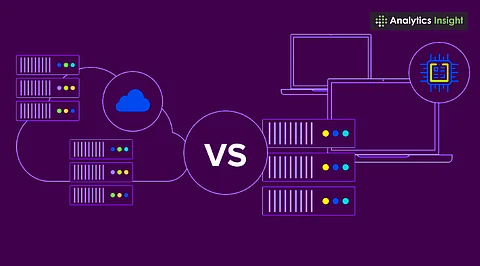As businesses prepare for the challenges and opportunities of 2025, the choice between cloud and local hosting remains a crucial decision. Each option presents distinct advantages and disadvantages that can significantly impact operational efficiency, security, and costs. Understanding these factors is essential for organizations looking to optimize their hosting solutions.
Understanding Cloud Hosting
Cloud hosting enables businesses to store data across multiple external servers managed by service providers such as AWS, Google Cloud, and Microsoft Azure. This model offers several key benefits, including scalability, remote access, and cost flexibility. Companies can easily expand their storage capacity without the need for significant upfront investment, paying only for the resources they consume.
In addition, cloud hosting ensures automatic backups, which can be invaluable in preventing data loss. The ability to access data from any location enhances collaboration, particularly for businesses with remote teams or those experiencing seasonal demand fluctuations.
However, while cloud solutions may initially appear cost-effective, expenses can rise dramatically as usage increases. Companies experiencing rapid growth or high traffic volumes must carefully monitor their cloud expenditures to avoid unexpected costs.
The Case for Local Hosting
In contrast, local hosting involves storing data on servers located within a company’s premises or data centers. This arrangement provides organizations with greater control over their data and security protocols. Businesses in sensitive sectors, such as finance or healthcare, often prefer local hosting to comply with stringent regulatory requirements and to minimize risks associated with data breaches.
Local hosting typically allows for faster access to data for employees connected to the same network, enhancing productivity. While the initial investment in hardware and maintenance can be substantial, local hosting can be more predictable in terms of monthly expenses, potentially offering long-term savings for organizations with stable data needs.
Despite the advantages, local hosting comes with its own set of challenges. Companies must invest in IT resources to manage the servers and ensure ongoing security updates. This reliance on internal staff can be a significant drawback, especially for smaller businesses lacking dedicated IT teams.
Evaluating Your Business Needs
Choosing between cloud and local hosting ultimately depends on specific business needs, size, and growth objectives. Startups and small businesses, particularly those anticipating rapid expansion, may find cloud solutions more aligned with their requirements due to the ease of scalability. Conversely, organizations prioritizing control over their data security, especially those handling sensitive information, may lean towards local hosting.
A hybrid approach, combining elements of both cloud and local hosting, is also gaining traction. This model allows businesses to leverage the strengths of both systems, optimizing resource allocation while maintaining security for critical data.
In conclusion, as companies navigate the complexities of digital infrastructure in 2025, the decision between cloud and local hosting remains pivotal. By carefully assessing their operational needs, budget constraints, and future growth plans, organizations can make informed choices that support long-term success.






































































